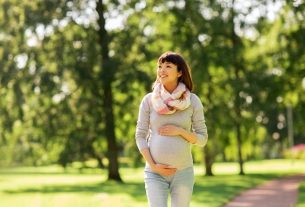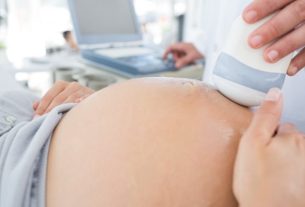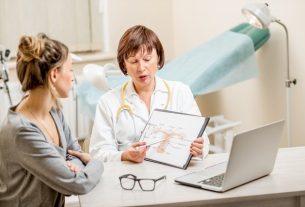During menopause it is not possible to get pregnant spontaneously, as the body is not capable of adequately producing all the hormones necessary for the maturation of the egg and preparation of the uterus, which ends up making pregnancy impossible.
Menopause begins when a woman goes 12 months in a row without menstruating naturally, without this having any association with hormonal diseases or psychological disorders. This period occurs most frequently after the age of 48, marking the end of the female reproductive period.
What can happen is that after a few months of missed menstruation, the woman has the false impression of being in menopause and from then on, if an egg is released during the same period of unprotected sexual intercourse, a pregnancy can occur. This period is called pre-menopause or climacteric and is marked by hot flashes. Take the test and see if you might be pre-menopausal.

Is there a way to get pregnant during menopause?
If a woman chooses to have a late pregnancy, the only way for pregnancy to happen is during the pre-menopause period. Because at this stage, although hormones are beginning to suffer a natural reduction, it is possible, through hormone replacement treatment and fertilization. in vitro, reverse this situation. Find out how hormone replacement therapy is done.
However, pregnancy must be closely monitored by an obstetrician, as it can pose risks to the health of the woman and the baby, such as increased chances of various complications, such as gestational diabetes, eclampsia, miscarriage, premature birth and there is also a greater possibility of the baby having a syndrome, such as Down syndrome.
What prevents pregnancy during menopause
During menopause, a woman is no longer able to get pregnant because the ovaries reduce the production of progesterone and estrogen, which prevents the eggs from maturing and the endometrium from growing. Therefore, in addition to not having an egg that can be fertilized, the endometrium would also not grow enough to receive an embryo.
Even though this period can be frustrating for those trying, and troubled for those who are already post-menopausal, it is possible to go through this phase more calmly. In the following video, nutritionist Tatiana Zanin shows simple tips on how to get through this phase:
Bibliography
- SCIELO. Menopause: Biopsychosocial Milestone of Female Aging. 2013. Available at: <https://www.scielo.br/pdf/psoc/v25n2/18.pdf>. Accessed on October 6, 2020
- HEALTH AND SOCIETY. Menopause or Menopauses?. 2005. Available at: <https://www.scielo.br/scielo.php?script=sci_arttext&pid=S0104-12902005000100010>. Accessed on October 6, 2020
- BRAZILIAN FEDERATION OF GYNECOLOGY AND OBSTETRICS ASSOCIATIONS. Climate Guidance Manual. 2010. Available at: <https://www.febrasgo.org.br/images/arquivos/manuais/Manuais_Novos/Manual_Climaterio.pdf>. Accessed on October 6, 2020

Sign up for our newsletter and stay up to date with exclusive news
that can transform your routine!
Warning: Undefined array key "title" in /home/storelat/public_html/wp-content/plugins/link-whisper-premium/templates/frontend/related-posts.php on line 12
Warning: Undefined array key "title_tag" in /home/storelat/public_html/wp-content/plugins/link-whisper-premium/templates/frontend/related-posts.php on line 13





